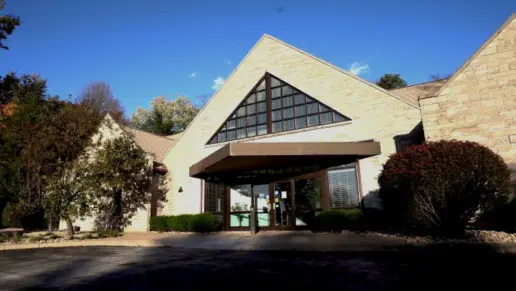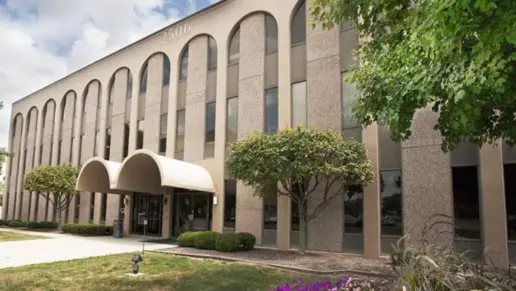I admitted myself to NE center inpatient in auburn, Indiana for what I thought were their "speciality"-- problems with the mind. I stayed there 5 days, after which I decided the rest could b managed with outpatient services. I really talked during my stay, my Christianity h ...
About Northeastern Center – Inpatient
Northeastern Center–Inpatient, located in Auburn, Indiana, provides mental health and dual diagnosis care for adults. They provide crisis intervention, medically supervised detox, patient stabilization, acute inpatient programming, and aftercare planning and support.
Specialized services at Northeastern Center include dedicated programming for young adults, military personnel and veterans, and seniors. Staff can help clients determine the appropriate treatment track, based on the following program options:
Inpatient Program
The residential treatment center allows clients to focus on their recovery in a highly structured and supportive environment. Amenities include home-like surroundings, private rooms, and on-site fitness and recreational facilities. Clients receive medical and mental health assessments, personalized care planning, and comprehensive case management. Those undergoing detox may be prescribed FDA-approved medications to ease withdrawal symptoms and prevent potentially serious complications. Clients also engage in intensive, trauma-informed individual, group, and family counseling drawing on proven psychotherapeutic modalities including CBT. The program promotes clients’ sustained sobriety and successful community reintegration through robust, recovery-focused life-skills training. Topics include coping, self-care, wellness, emotional regulation, and relapse prevention. An array of evidence-based complementary therapies, including activity therapy, is available.
Aftercare Services
Their aftercare services ensure a complete continuum of care aligned with clients’ evolving needs. These services include transitional support for clients stepping down to outpatient treatment. Clients may also receive referrals for medical, mental health, and social service programs.
Accreditation and Payment
Northeastern Center–Inpatient is accredited by CARF. They accept private insurance, financing, sliding-scale payment schedules, Medicare, Medicaid, and self-pay. Financial aid is available.
Latest Reviews
Rehab Score
Other Forms of Payment
Medicaid is a state based program that helps lower-income individuals and families pay for healthcare. Medicaid covers addiction treatment so those enrolled can use their coverage to pay for rehab. When a program accepts Medicaid the client often pays very little or nothing out of their own pocket.
Private insurance refers to any kind of healthcare coverage that isn't from the state or federal government. This includes individual and family plans offered by an employer or purchased from the Insurance Marketplace. Every plan will have different requirements and out of pocket costs so be sure to get the full details before you start treatment.
Self-pay involves paying for treatment out of your own pocket. You can use savings or credit, get a personal loan, or receive help from family and friends to fund your treatment. If you don't have insurance or your insurance plan doesn't cover a specific program, self-pay can help ensure you still get the care you need.
Financial aid can take many forms. Centers may have grants or scholarships available to clients who meet eligibility requirements. Programs that receive SAMHSA grants may have financial aid available for those who need treatment as well. Grants and scholarships can help you pai for treatment without having to repay.
Sliding scale payments are based on a client's income and family size. The goal is to make treatment affordable to everyone. By taking these factors into account, addiction recovery care providers help ensure that your treatment does not become a financial burden to you or your family, eliminating one barrier to care.
Medicare is a federal program that provides health insurance for those 65 and older. It also serves people under 65 with chronic and disabling health challenges. To use Medicare for addiction treatment you need to find a program that accepts Medicare and is in network with your plan. Out of pocket costs and preauthorization requirements vary, so always check with your provider.
Addiction Treatments
Levels of Care
Treatments
Many of those suffering from addiction also suffer from mental or emotional illnesses like schizophrenia, bipolar disorder, depression, or anxiety disorders. Rehab and other substance abuse facilities treating those with a dual diagnosis or co-occurring disorder administer psychiatric treatment to address the person's mental health issue in addition to drug and alcohol rehabilitation.
Mental health rehabs focus on helping individuals recover from mental illnesses like bipolar disorder, clinical depression, anxiety disorders, schizophrenia, and more. Mental health professionals at these facilities are trained to understand and treat mental health issues, both in individual and group settings.
Programs


Clinical Services
Experiential therapy is a form of therapy in which clients are encouraged to surface and work through subconscious issues by engaging in real-time experiences. Experiential therapy departs from traditional talk therapy by involving the body, and having clients engage in activities, movements, and physical and emotional expression. This can involve role-play or using props (which can include other people). Experiential therapy can help people process trauma, memories, and emotion quickly, deeply, and in a lasting fashion, leading to substantial and impactful healing.
Group therapy is any therapeutic work that happens in a group (not one-on-one). There are a number of different group therapy modalities, including support groups, experiential therapy, psycho-education, and more. Group therapy involves treatment as well as processing interaction between group members.
Nicotine Replacement Therapy (NRT) is a way of getting nicotine into the bloodstream without smoking. It uses products that supply low doses of nicotine to help people stop smoking. The goal of therapy is to cut down on cravings for nicotine and ease the symptoms of nicotine withdrawal.
Nutrition therapy, aka medical nutrition therapy (MNT), is a way of treating physical, emotional, and medical conditions through diet. Specific dietary plans are designed by professional nutritionists or registered dietitians, and patients follow them in order to positively affect their physical and mental health.
Contact Information
1850 Wesley Road
Auburn, IN 46706


